Do you often feel exhausted, overwhelmed, and emotionally drained? Are you burnt out? You may be experiencing the 12 stages of burnout, a state of extreme stress that can have serious consequences for your physical and mental health.
Let us explore the stages of burnout, learn how to recognize them, and discuss effective strategies for preventing burnout and maintaining your well-being.
Understanding burnout
We live in a society where almost all of us are burnt out. We are physically, mentally and emotionally exhausted and often feel that we don’t have the energy to get up tomorrow morning and do the same things again.
But what exactly is burnout?
Burnout is a state of physical, emotional & mental exhaustion caused by prolonged and excessive stress. It is a serious condition caused by chronic stress that leads to emotional exhaustion, detachment from others, and a reduced ability to perform at your best.
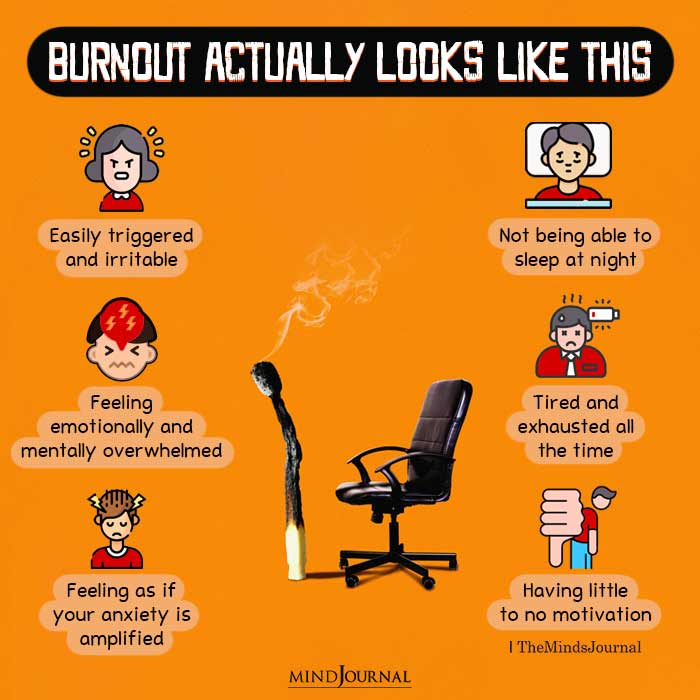
Anyone can feel burnt out or emotional exhaustion regardless of their profession, from a CEO to a stay-at-home parent, and it can lead to a range of negative consequences, including depression, anxiety, and physical health problems.
One of the most insightful frameworks for understanding mental burnout is the 12 stages of burnout. These stages were identified by psychologists Herbert Freudenberger and Gail North based on their clinical observations of patients suffering from this condition.
Related: What Exactly Is Emotional Exhaustion? 8 Signs You Really Need A Break
Freudenberger and North noticed that burnout develops over time and is characterized in 12 stages as stress accumulates in individuals’ lives, gradually depleting their energy reserves and motivation.
The 12 stages of burnout
Here are the 12 stages of burnout as explained by psychologists Herbert Freudenberger and Gail North –
Stage 1: A compulsion to prove oneself
The first stage of burnout is characterized by an intense desire to prove oneself. This often involves working long hours, taking on extra projects, and striving for perfection. While this attitude can lead to success in the short term, it can also set the stage for work burnout down the road.
Stage 2: Working harder
As work burnout sets in, individuals often begin to work harder in an effort to maintain their level of productivity. This can include sacrificing personal time, neglecting self-care, and pushing oneself to the point of mental exhaustion.
Stage 3: Neglecting personal needs
At this stage, individuals begin to neglect their personal needs, including sleep, exercise, and healthy eating habits. This can lead to physical health problems, including weight gain, insomnia, and chronic fatigue.
Related: Quiet Quitting: A Mental Health Movement Or An Anti-Work Movement?
Stage 4: Displacement of conflicts
Individuals at this stage of burnout, whether it’s job burnout or occupational burnout, often begin to displace their conflicts onto others.
This can manifest as blaming colleagues or family members for their stress, becoming irritable or short-tempered, and feeling a sense of resentment towards those around them.
Stage 5: Revision of values
As burnout progresses, individuals may begin to question their values and priorities. They may feel disillusioned with their work or personal life and struggle to find meaning or fulfillment in their daily activities.
Stage 6: Denial of problems
At this stage, individuals may begin to deny that they have a problem with burnout. They may feel a sense of shame or embarrassment about their struggles and may try to hide their symptoms from others.
Stage 7: Withdrawal
Individuals at this stage of burnout, whether it’s job burnout or occupational burnout, may begin to withdraw from social activities and interactions. They may feel a sense of isolation and may avoid contact with others in an effort to avoid further stress and overwhelm.
Stage 8: Obvious behavioral changes
As burnout becomes more severe, individuals may begin to exhibit obvious behavioral changes. They may become more irritable, emotional, or moody, and their work performance may begin to suffer.
Stage 9: Depersonalization
At this stage, individuals may begin to feel a sense of detachment from their work or personal life. They may feel like they are going through the motions without really engaging or connecting with the people or activities around them.
Related: Exhausted! 10 Signs You Are Tired Of Life (And How To Cope With It)
Stage 10: Inner emptiness
Individuals at this stage of burnout may feel a sense of inner emptiness or numbness. They may struggle to find joy in activities that once brought them happiness and may feel disconnected from their own emotions.
Stage 11: Depression
As burnout becomes more severe, individuals may begin to experience symptoms of depression, including feelings of hopelessness, sadness, and worthlessness.
They may struggle to get out of bed in the morning or may feel like they are just going through the motions of life. This is one of the most devastating phases of the 12 stages of burnout.
Stage 12: Burnout syndrome
The final stage of burnout is known as burnout syndrome. At this stage, individuals may feel completely overwhelmed and unable to cope with their stress.
They may experience physical symptoms such as headaches, digestive issues, and chronic pain, and may struggle to maintain their personal and professional relationships.
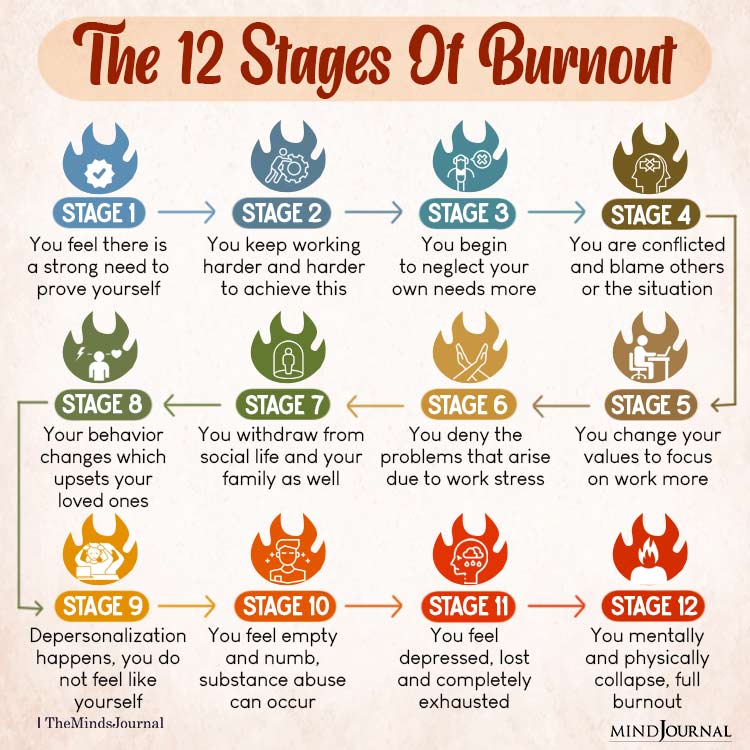
Freudenberger and North’s identification of the 12 stages of burnout paved the way for research, prevention strategies and interventions to address this increasingly prevalent condition. Early awareness of the signs can help interrupt burnout’s progression and reverse its effects.
Preventing emotional burnout
Looking for ways for dealing with burnout? While the 12 stages of burnout can be overwhelming, it’s important to remember that mental burnout is preventable.
Here are a few strategies you can use to start dealing with emotional burnout and prevent it to maintain your physical, emotional, and mental well-being:
1. Set boundaries
Establish clear boundaries between your work and personal life. Set realistic expectations for yourself and others, and learn to say no to requests that exceed your capacity.
2. Prioritize self-care
Self-care is perhaps the best burnout treatment. Make time for activities that bring you joy and help you recharge, such as exercise, meditation, or spending time in nature. Prioritize good sleep habits and healthy eating habits to support your physical health. This is a crucial step in dealing with burnout.
3. Seek support
Don’t be afraid to reach out to friends, family, or a mental health professional for support and guidance for burnout treatment. Talking about your emotions and struggles can help you gain perspective and develop coping strategies.
Related: How To Break Monotony In Life: 35 Hacks To Make Life More Thrilling
4. Practice mindfulness
Incorporate mindfulness practices, such as deep breathing or meditation, into your daily routine to reduce stress and increase self-awareness.
5. Take breaks
Take regular breaks throughout the day to rest and recharge. This can include short breaks to stretch or walk around, or longer breaks to take a vacation or attend a retreat.
Takeaway
The 12 stages of burnout provide a helpful framework for understanding the progression of burnout and the negative consequences it can have on our physical, emotional, and mental health.
By recognizing the signs of burnout and taking proactive steps to prevent it, we can maintain our well-being and lead fulfilling, satisfying lives.
Remember to prioritize self-care, seek support when needed, and set realistic boundaries to avoid burning out.
Related: How To Prevent Burnout: 13 Signs You’re On The Edge
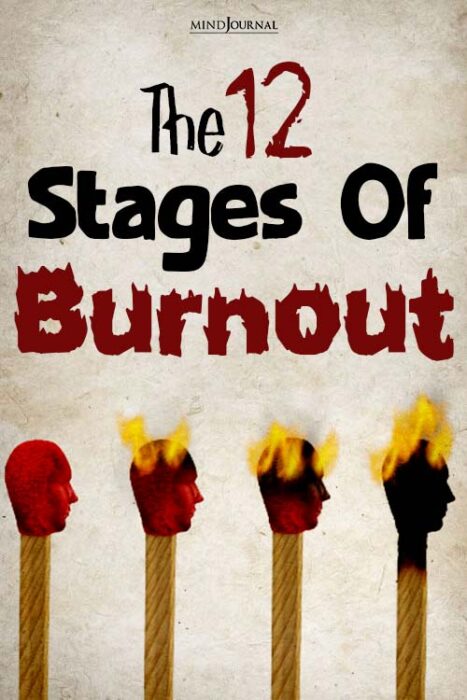
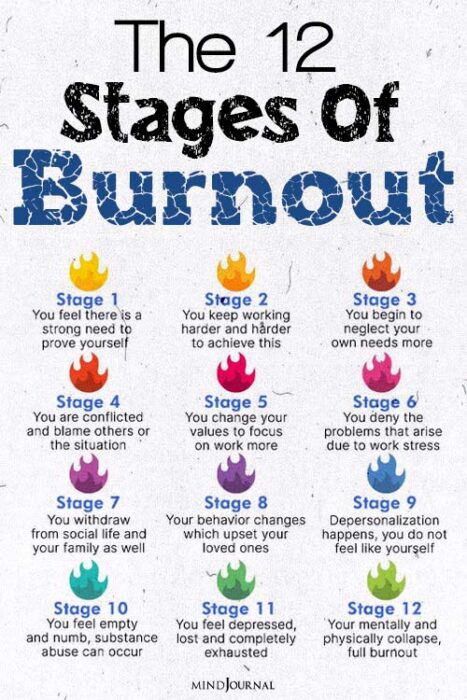
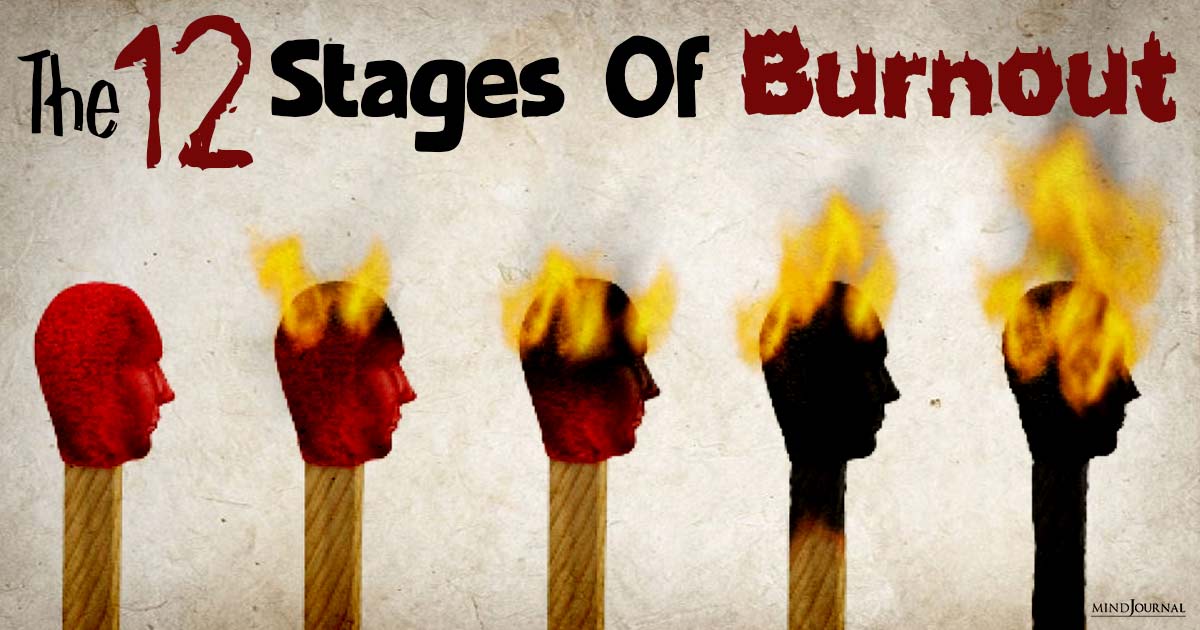

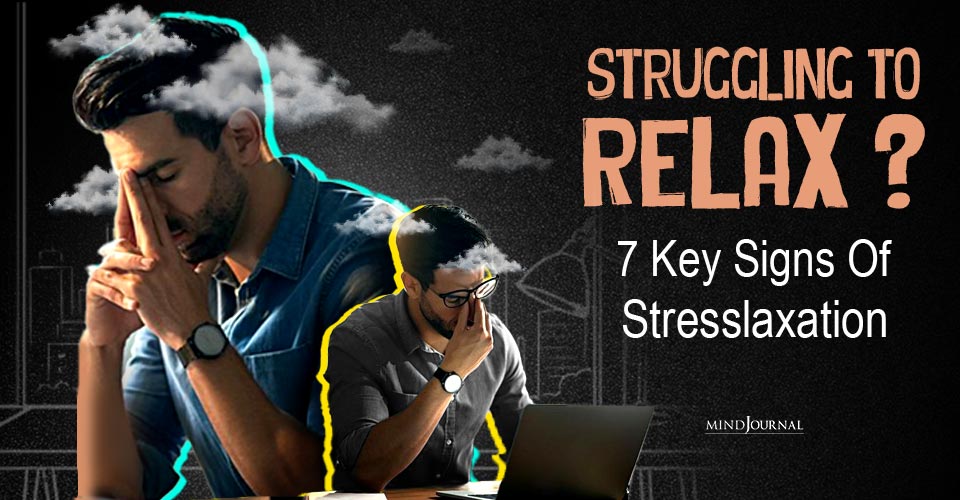

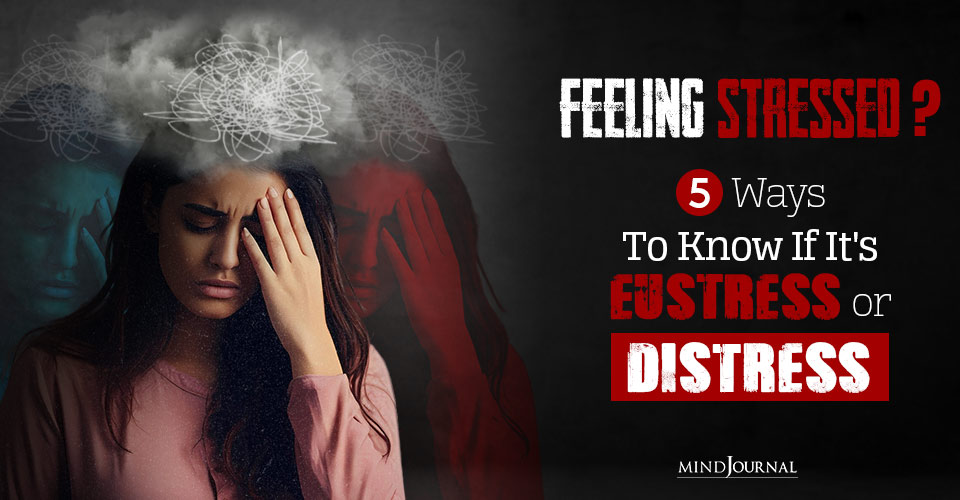
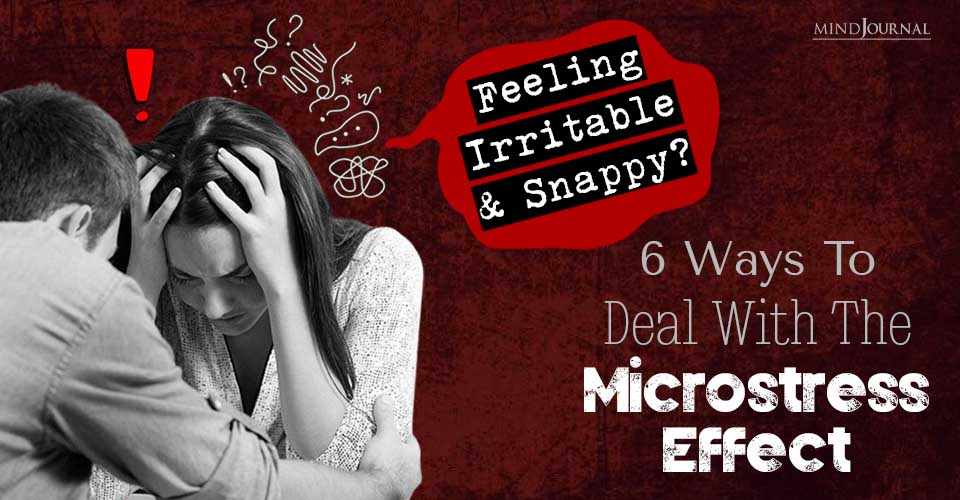


Leave a Reply
You must be logged in to post a comment.